MathMaster Blog
The absolute value of a number is its distance from zero on a number line.
Important:
- the absolute value is never negative
- the absolute value of 0 is 0 because the distance between a number and itself is zero.
The absolute value of a number a is written as ∣ a ∣ . For example, the absolute value of – 7 is written as | – 7|.
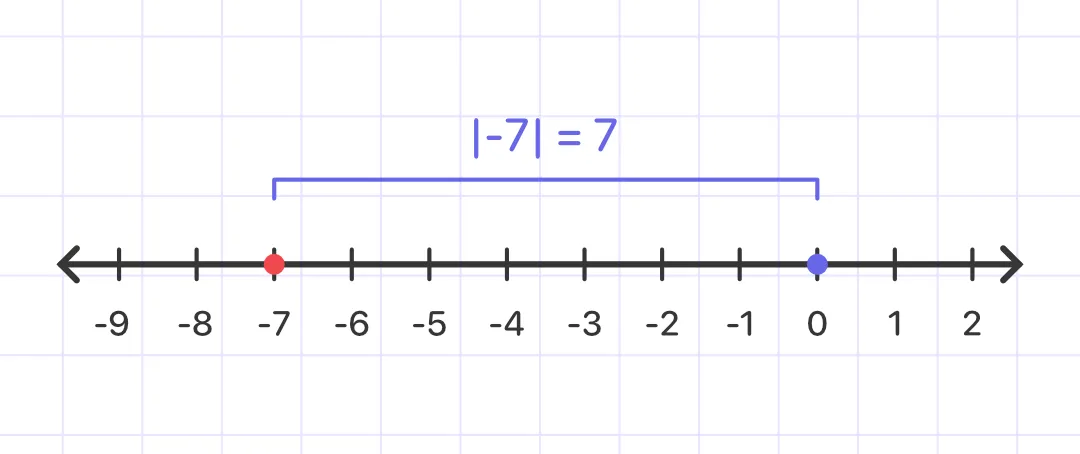
Example 1:
Find the absolute value of 2.
Solution:
Graph 2 on a number line
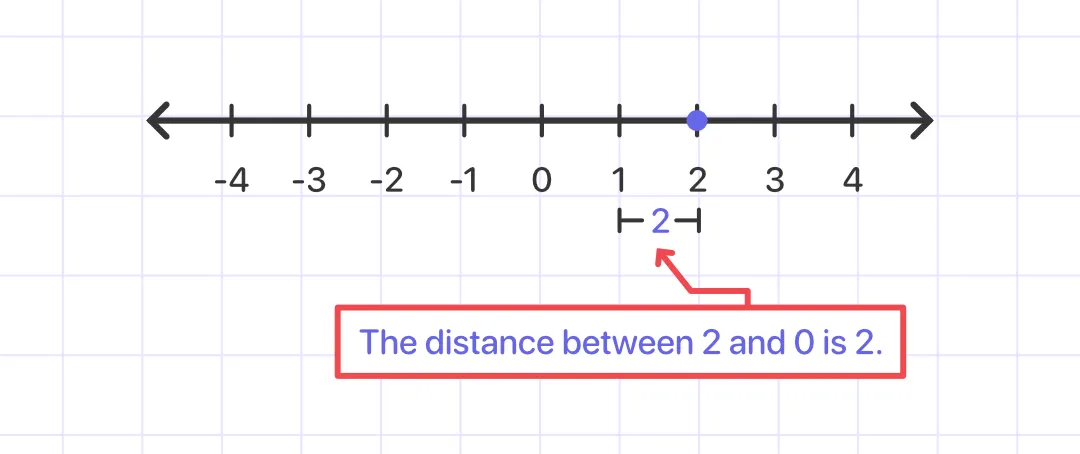
Answer: ∣ 2 ∣ = 2.
Example 2:
Graph -3 on a number line
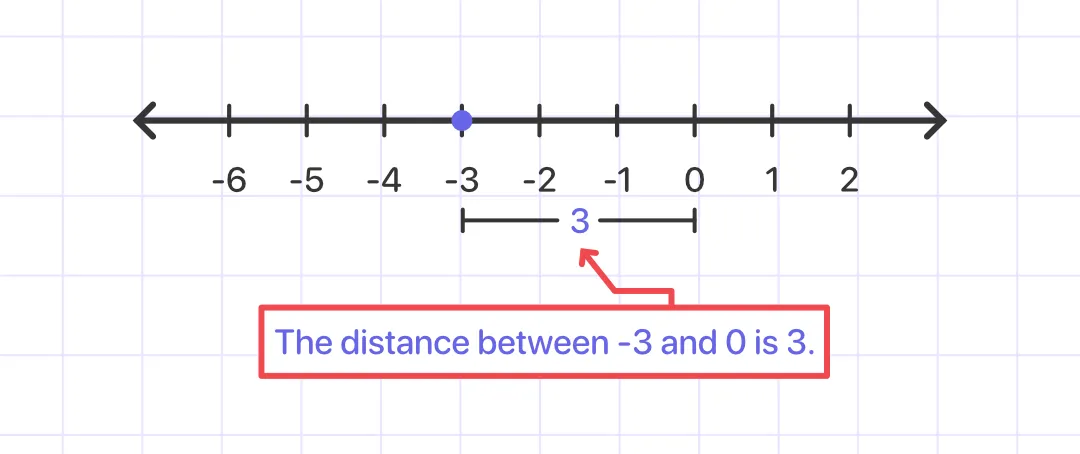
Answer: ∣ -3 ∣ = 3.
Example 3: Comparing values
Compare 1 and ∣ −4 ∣ .
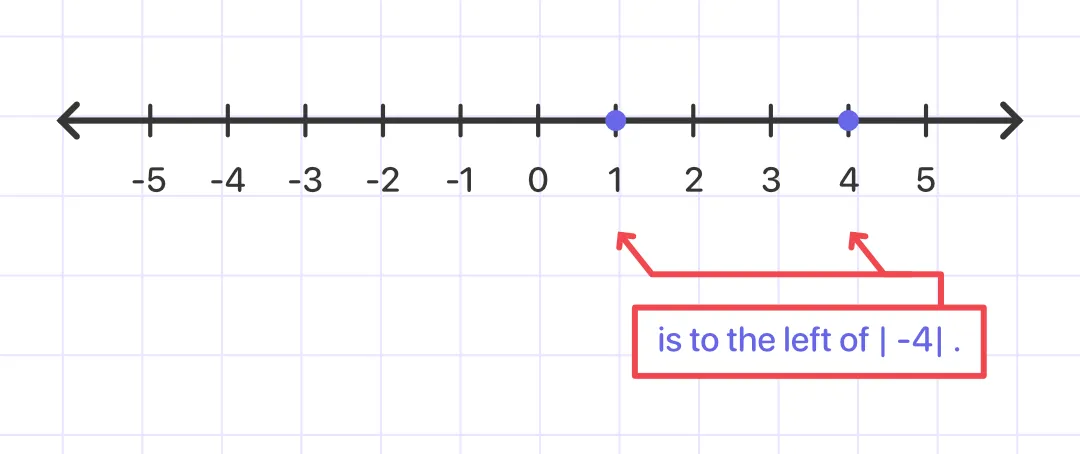
Answer: 1 < ∣ −4 ∣.
Opposites
Opposites are numbers that are on the opposite side of 0 but have the same absolute value.
To find the opposite of a number, multiply the number by -1, or just add/remove a minus sign.
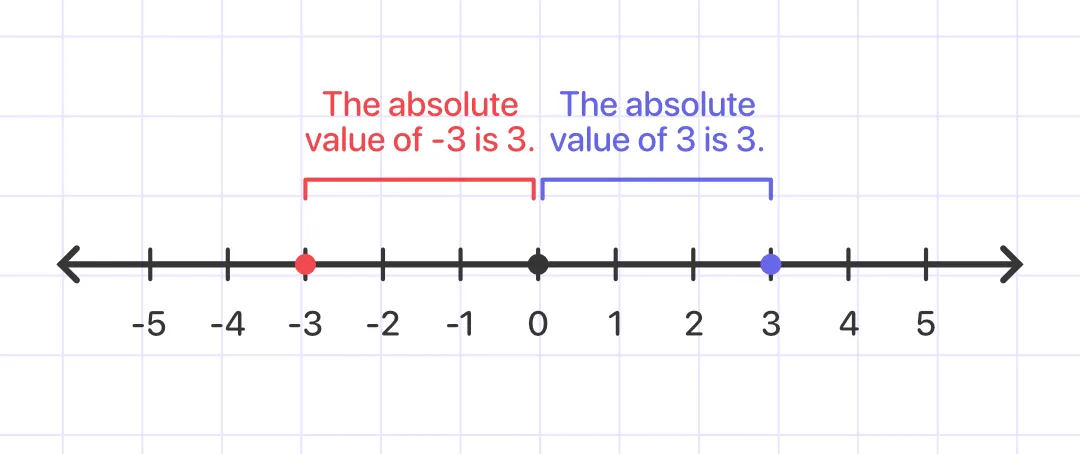
For example, – 3 and 3 are opposites.
Negative signs in front of an absolute value
It’s the same thing as a -1 being multiplied by the absolute value of a number.
For example, we can rewrite -|-4| as (-1)|-4|.
In this case, you need to find the absolute value of -4 first, and then multiply that number by -1.
So, -|-4| = (-1) |-4| = (-1) (4) = -4